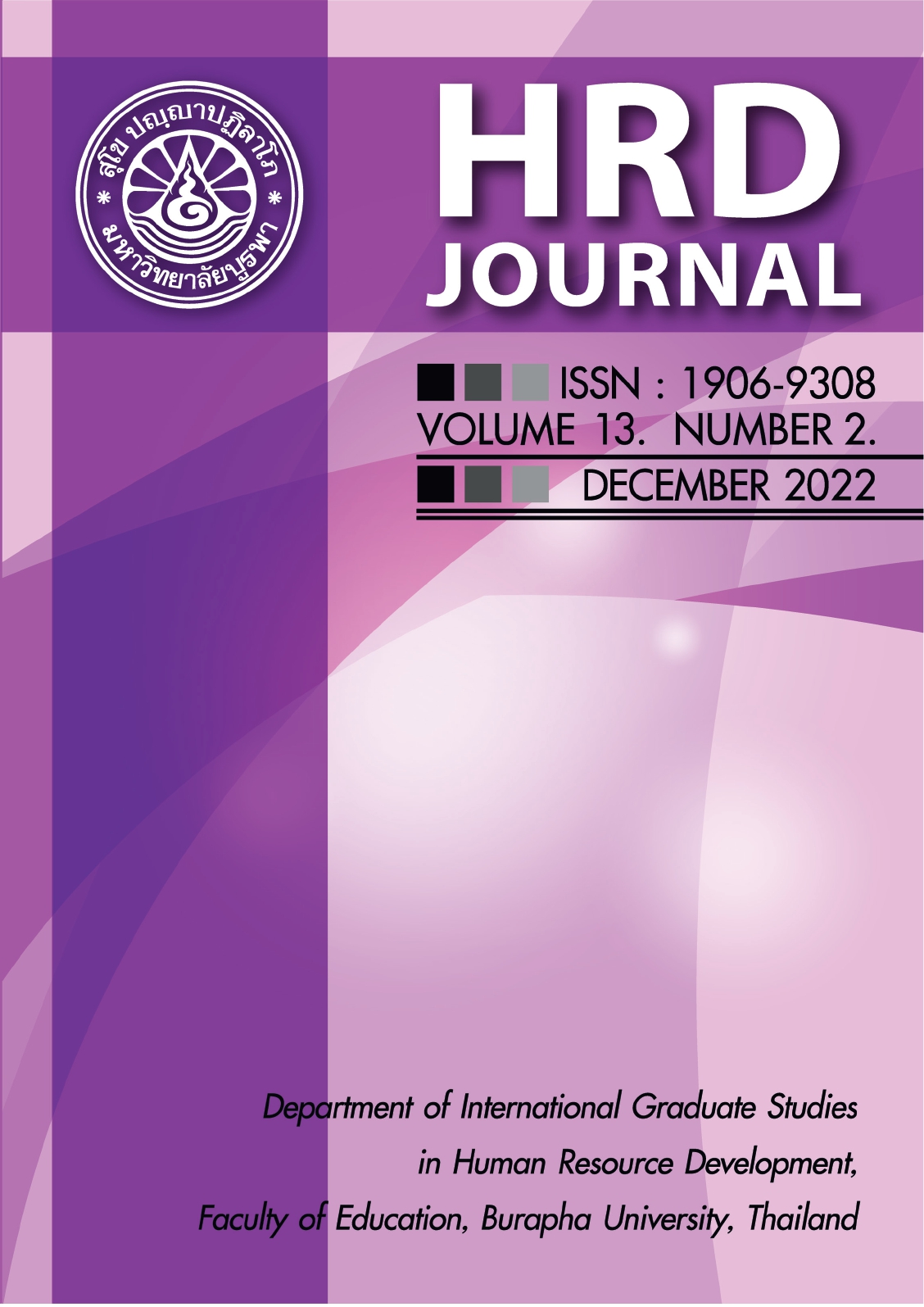An Evaluation of the Doctor of Philosophy Program in Educational Technology, Revised A.D. 2016
Keywords:
An Evaluation, Doctor of Philosophy Program, Educational TechnologyAbstract
The purposes of this research were: 1) to evaluate the doctoral of philosophy program in educational technology, 2016 revised edition by applying CIPP model for evaluation. 2) to study the opinions for the requirements of the doctoral of philosophy program in educational technology and applying information to graduate’s work. 3) to study desirable graduate characteristics. 4) to provide recommendations and guidelines for improving the doctoral of philosophy program in educational technology. The population of this research were 28 persons; consisted of experts in educational technology, committees and instructors of the doctoral of philosophy program in educational technology, students of the doctoral of philosophy program in educational technology and employers of agencies or establishments. The instruments of this research were the 5 levels rating scale questionnaire and the structured interview type. The collect data were analyzed by using percentage, mean, standard deviation and content analysis.
The result found that:
The results of evaluation on the doctoral of philosophy program in educational technology, 2016 revised edition were 1) the opinions of the doctoral of philosophy program in educational technology in all of aspects (the context, the import factor, the process and the outcomes) were average at the high level. 2) the opinions of committees and instructors for the requirements of the doctoral of philosophy program in educational technology were average at the highest level (x̄ = 4.60 / S.D. = 0.10) and the opinions of students were average at the highest level (x̄ = 4.50 / S.D. = 0.17) 3) the opinions of committees and instructors for applying knowledge to work were average at the highest level (x̄ = 4.61 / S.D. = 0.11) and the opinions of students were average at the highest level (x̄ = 4.61 / S.D. = 0.08) 4) the opinions to desirable graduate characteristics were at the high level (x̄ = 4.67 / S.D. = 0.11)
References
บุญชม ศรีสะอาด. (2546). การพัฒนาหลักสูตรและการวิจัยเกี่ยวกับหลักสูตร. กรุงเทพฯ: สุวีริยาสาสน์น.
มารุต พัฒผล. (2556). การประเมินหลักสูตรเพื่อการเรียนรู้และพัฒนา. พิมพ์ครั้งที่ 2. กรุงเทพฯ: อาร์ แอนด์ เอ็น ปริ้นท์.
ศิริชัย กาญจนวาสี. (2548). ทฤษฎีการประเมิน. กรุงเทพฯ : จุฬาลงกรณ์มหาวิทยาลัย.
สุนีย์ ภู่พันธ์. (2546). แนวคิดพื้นฐานการสร้างการพัฒนาหลักสูตร. เชียงใหม่: เดอะ โนวเลจ เซนเตอร์.
สุรวีร์ เพียรเพชรเลิศ. (2561). แนวคิดและแนวทาง: การประเมินหลักสูตร. กรุงเทพฯ : โรงพิมพ์แห่งจุฬาลงกรณ์มหาวิทยาลัย.
อนุสรณ์ นางทะราช. (2549). การประเมินหลักสูตรพุทธศาสตรบัณฑิต. วิทยานิพนธ์ ปริญญาศึกษาศาสตรมหาบัณฑิต สาขาวิชาหลักสูตรและการสอน บัณฑิตวิทยาลัย มหาวิทยาลัยขอนแก่น.
Parkay, F.W. & Hass, F.G. (2000). Curriculum Planning: A Contemporary Approach. 7th Edition. Boston: Allyn and Bacon.
Skog, D.A., Wimelius, H. & Sandberg, J. (2018). Digital Disruption. Business & Information Systems Engineering. 60(4), 431–437.
Stufflebeam, Daniel L. (1971). Education Evaluation and Decision Making. Itasca, Illinois: F.E. Peacock Publishers, Inc.,
Taba, H. (1962). Curriculum Development: Theory and Practice. New York: Harcourt, Race and World.
Downloads
Published
How to Cite
Issue
Section
License
Copyright (c) 2023 Department of International Graduate Studies in Human Resource Development, Faculty of Education, Burapha University

This work is licensed under a Creative Commons Attribution-NonCommercial-NoDerivatives 4.0 International License.
Copyright@HRD Journal, Burapha University






